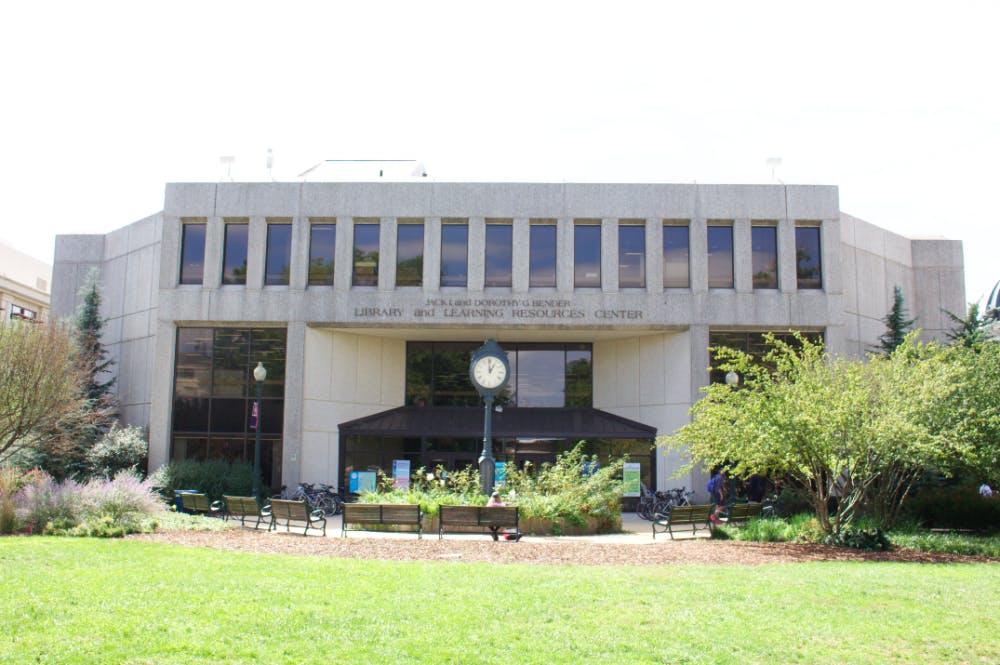Personal loss, financial hardship, anxiety and depression are only some of the challenges that students have faced throughout the coronavirus pandemic. In the midst of this chaos, students across the country have also had to adjust to remote learning. These conditions have taken a toll on students’ mental health. Research has shown that 91 percent of college students felt greater stress and anxiety after the COVID-19 outbreak, and 81 percent feel that the pandemic has caused them disappointment and sadness. And yet, these students do not have to deal with crazy time-zone differences.
It is not an overstatement to say that international students are struggling to keep up. Some have had to take classes with a six or twelve hour difference. Let’s put that into perspective. While D.C.-based students start a class at 5 p.m., students in Europe will start at 11 p.m., and finish at 1 or 2 a.m.
Across the globe, students in Asia will wake up as early as 5 a.m. to log on to their Zoom class, and will likely finish between 7 or 8 a.m. – precisely when most of the population wakes up. I am speaking for the international community when I say that this adds additional stress to our lives, on a professional, social and personal scale.
A few weeks through the fall 2020 semester, I’ve experienced multiple anxiety attacks, and I’ve felt increasingly isolated from my peers. While they cannot meet for classes on campus, they are able to socialize during online events, and to expand their academic and professional knowledge thanks to AU’s many online webinars. ‘Zoom fatigue,’ ‘Zoom gloom’ — whatever you name it — has proven to be dangerous for mental health. For students who already attend classes in the middle of the night, there is no incentive to attend any other Zoom events, further contributing to a persistent feeling of solitude.
The fact that international students cannot physically be on campus also affects us on a professional level. Earlier this month, I decided to end my internship, so as to preserve my mental health, because I couldn’t combine my professional work with very late-night, demanding classes. Due to visa restrictions, international students have to work for at least a year on campus before being able to get an internship or a job. That is not possible given the current situation and it is especially frustrating for people enrolled in a master’s level course of study.
International students are spending vast amounts of money to experience tough challenges to their mental health and well-being, and they reap little to no benefit. Currently, a master’s student living in Dupont Circle is paying the same tuition as someone living in Beijing, China, nevermind the 12 hour difference, the impossibility to enjoy the campus library or the ability to meet in person. And while COVID-19 affects all students, I believe international students may be the most exposed.
An endless amount of international student workshops will not change that, either. It is past time for AU to allow for at least one in-person provision; it could be as easy as a monthly discussion in very small, socially-distanced groups during the spring semester, so that international students can travel to the United States and regain a sense of normalcy to their lives.
Of course, public health and safety are a priority. However, filling the gap between U.S.-based and international students does not represent a threat to that goal. Recently, Dr. Anthony Fauci reminded us of the efficiency of precautionary measures like wearing a mask, social distancing and washing your hands. If those are implemented aggressively, the risks can be greatly diminished.
The University’s COVID-19 tracker reported zero new cases in the AU community during the week of Oct. 12, meaning the total confirmed cases number since the start of the semester remains at 26. International students follow the same guidance as the rest of students, and it is not unrealistic to let them come to D.C. It is unrealistic to keep asking them to attend classes from one or two oceans away for another five months. We are only asking for a single in-person provision so as to meet our visa requirements and travel to the United States, something that Georgetown University has agreed to do, as can be found on their course website.
Back in June, AU stated that “international students bring a global perspective to our campus and are valued members of our community.” It is high time to walk the talk. Staying online for another semester will have a dramatic mental health impact on the international community, and it should be taken off the table. The sight of another fully-online semester scares us, and I personally would rather preserve my mental health than pay a semester’s worth of tuition wasting it.
President Sylvia Burwell and those in the administration: You have the chance to bring some equilibrium back into our lives and prove that international students are part of the AU community. Now is the perfect time to take it.
Signed,
Gaspard Delaoustre, MPP Student
Tovah Bloomfield, MPP Student
Juan Carlos Guerrero, MPP Student
Ryan Traher, MPP student
Julia Singer, MPP student
Abby Korb, MPP student
Sarah Grace Cuthbert, MPP student
Haleigh Sinclair, MPP student
Sandy Zumbi, MPP student
Fiona Grady, MPP student
Andrew Blickle, MPP student,
Amanda Hermans, MPP student
Mallory Carbonara, MPP student,
Parni Shiraz, MPP student
Seamus Dowdall, MPP student
Ryan Fisher, MPP student
Tom Lebert, MPA student
Samreen Singh, MPP student
Emi Cabray, MPP student
Lana Al-Khatib, MPP student
Lea Woods, MPP student
Sarah Edwards, MPP student
Tashfia Hasan, MPP student
Le Hieu Anh Thi, MPP student
Gaspard Delaoustre and those that signed this letter are members of the School of Public Affairs master’s program. The opinions expressed by the author and signers are theirs alone, and do not necessarily reflect the views of The Eagle and its staff.





